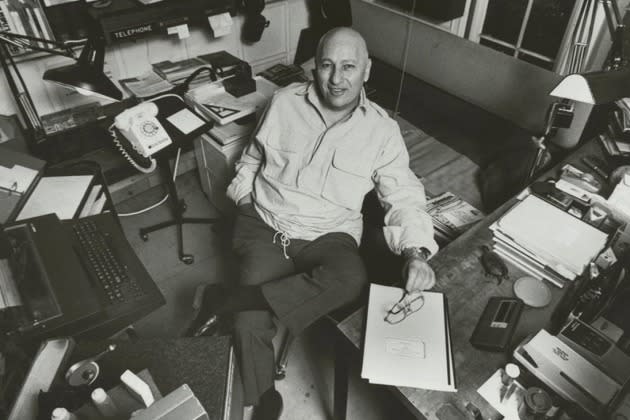Former Writers Guild Chief: Why Writers Rooms Matter, and Can Save Lives
- Oops!Something went wrong.Please try again later.

My father, Howard Rodman Sr., worked in one-hour episodic network drama in the 1960s, notably on Route 66 and Naked City. There were no writers rooms then in one-hour drama. Only two people, called “story editors,” and a pool of freelancers. That was it. The two of them — my father and Stirling Silliphant — wrote or rewrote every single episode.
You can only imagine — meaning you can’t imagine — the pressure they were under. In those days, a season of television was 32-39 weeks. For comparison: picture having to write and film four seasons of Succession in a span of ten months. (And then, after the shortest of breaks, doing it all again.)
More from The Hollywood Reporter
Anonymous Strike Diary: The 'Eastside Warrior' on Stretching Out Those Final Paychecks
Writers Guild Targets Executive Pay in Letters to Netflix, Comcast Shareholders
WGA Asks Tony-Nominated Guild Members Not to Attend Tony Awards
They wrote pages in Los Angeles that were put on airplanes in hopes that they could be shot the next morning in New York. They used every prescription drug available to keep up the pace.
During the course of this my father worked through three minor heart attacks. He didn’t tell his doctor because his doctor might tell him to stop working. The show had to go on.
To be fair, the creativity that emerged from that crunch — my father’s work, Stirling’s work, and the work of wildly talented freelancers — was astonishing. Episodes of those series were nominated for five WGA awards and won three of them. But the relentless pace took its toll.
When in 1964 the run ended — 64 episodes of Route 66, 26 episodes of Naked City — my father had what we publicly referred to as “pneumonia.” A more accurate description would be a complete physical and mental collapse. It lasted the better part of two years.
He ultimately found his way back to writing but the damage had been done. As an express result of the working conditions of one-hour episodic drama in that era, he died of cardiac insufficiency at age 65.
Had there been other shoulders to help bear the load — had there been a room of writers, rather than two lone and overburdened men — it’s not unreasonable to think he might have lived into his 70s. Or 80s. Or even longer (His dear friend and colleague Walter Bernstein made it to 101).
The companies want as much work as possible done by as few people as possible at the lowest wages possible. They can’t help it. It’s what they are. They are as conscious of their workers’ health as are the owners of coal mines.
If they are not restrained by the power of our Guild, they will mandate a future for writers that all too clearly resembles my father’s past.
He has three grandchildren, none of whom he lived long enough to see. The fight to preserve the writers room is many things. But please remember: it is also a fight for working conditions that extend and enrich human lives.
Howard A. Rodman is a screenwriter and novelist. He is a former president of the Writers Guild of America West and a governor of the Academy of Motion Picture Arts and Sciences.
Best of The Hollywood Reporter
Meet the World Builders: Hollywood's Top Physical Production Executives of 2023
Men in Blazers, Hollywood’s Favorite Soccer Podcast, Aims for a Global Empire

